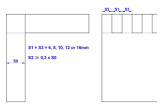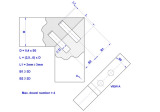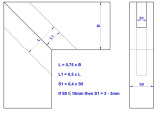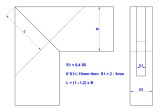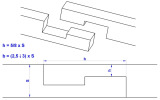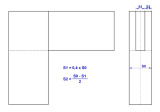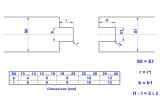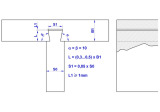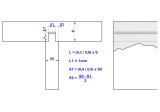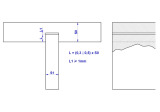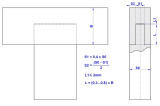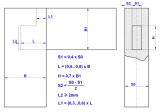To make your wooden structures as solid and durable as possible, here we have provided you with information on how to properly dimension woodworking joints.
All this information on the dimensioning of woodworking joints come from books and technical standards, which should be considered useful recommendations to help you with your woodworking projects. Today there are a lot of websites that offer pictures of woodworking and carpentry joints, but usually they do not give advice about the dimensioning of various kinds of joints between the wooden parts. You can find some hints on various woodworking and carpentry forums, but they are scattered among huge amounts of other posts and searching for it can get quite tiring. In cases when the wooden construction is not too loaded or when it has a little weight itself, the dimensioning is not so much important. But if you are dealing with big and expensive construction, damaging of which can cause injuries or great financial loss, the dimensioning of woodworking and carpentry joints is surely an important thing. On this page we have put the dimensioning of a few woodworking and carpentry joints. We will gradually update this page with the new material, and if you have some good advices about the joints or you have any suggestions, please let us know.

